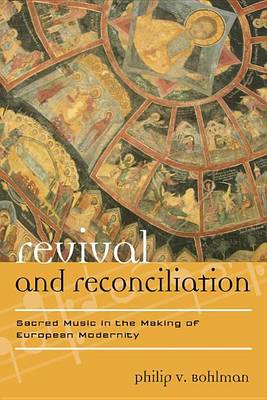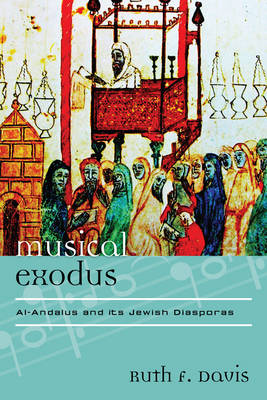Europea: Ethnomusicologies and Modernities
3 primary works
Book 10
Music and Displacement
by Michael Beckerman, Philip V. Bohlman, Sean Campbell, and Ruth F Davis
Published 1 January 2010
The grand narratives of European music history are informed by the dichotomy of placements and displacements. Yet musicology has thus far largely ignored the phenomenon of displacement and underestimated its significance for musical landscapes and music history. Music and Displacement: Diasporas, Mobilities, and Dislocations in Europe and Beyond constitutes a pioneering volume that aims to fill this gap as it explores the interactions between music and displacement in theoretical and practical terms. Contributions by distinguished international scholars address the theme through a wide range of case studies, incorporating art, popular, folk, and jazz music and interacting with areas, such as gender and post-colonial studies, critical theory, migration, and diaspora.
The book is structured in three stages-silence, acculturation, and theory-that move from silence to sound and from displacement to placement. The range of subject matter within these sections is deliberately hybrid and mirrors the eclectic nature of displacement itself, with case studies exploring Nazi Anti-Semitism in musical displacement; musical life in the Jewish community of Palestine; Mahler, Jewishness, and Jazz; the Irish Diaspora in England; and German Exile studies, among others. Featuring articles from such scholars as Ruth F. Davis, Sean Campbell, Jim Samson, Sydney Hutchinson, and Europea series co-editor Philip V. Bohlman, the volume exerts an appeal reaching beyond music and musicology to embrace all areas in the humanities concerned with notions of displacement, migration, and diaspora.
The book is structured in three stages-silence, acculturation, and theory-that move from silence to sound and from displacement to placement. The range of subject matter within these sections is deliberately hybrid and mirrors the eclectic nature of displacement itself, with case studies exploring Nazi Anti-Semitism in musical displacement; musical life in the Jewish community of Palestine; Mahler, Jewishness, and Jazz; the Irish Diaspora in England; and German Exile studies, among others. Featuring articles from such scholars as Ruth F. Davis, Sean Campbell, Jim Samson, Sydney Hutchinson, and Europea series co-editor Philip V. Bohlman, the volume exerts an appeal reaching beyond music and musicology to embrace all areas in the humanities concerned with notions of displacement, migration, and diaspora.
Book 16
Sacred music has long contributed fundamentally to the making of Europe. The passage from origin myths to history, the sacred journeys that have mobilized pilgrims, crusaders, and colonizers, the politics and power sounded by the vox populi-all have joined in counterpoint to shape Europe's historical longue duree. Drawing upon three decades of research in European sacred music, Philip V. Bohlman calls for a reexamination of European modernity in the twenty-first century, a modernity shaped no less by canonic religious and musical practices than by the proliferation of belief systems that today more than ever respond to the diverse belief systems that engender the New Europe. In contrast to most studies of sacred musical practice in European history, with their emphasis on the musical repertories and ecclesiastical practices at the center of society, Bohlman turns our attention to individual and marginalized communities and to the collectives of believers to whose lives meaning accrues upon sounding the sacred together.
In the historical chapters that open Revival and Reconciliation, Bohlman examines the genesis of modern history in the convergence and conflict that lie at the heart of the Abrahamic faiths-Judaism, Christianity, and Islam. Critical to the meaning of these religions to Europe, Bohlman argues, has been their capacity to mobilize both sacred journey and social action, which enter the everyday lives of Europeans through folk religion, pilgrimage, and politics, the subjects of the second half of his study. The closing sections then cross the threshold from history into modernity, above all that of the New Europe, with its return to religion through revival and reconciliation. Based on an extensive ethnographic engagement with the sacred landscapes and sites of conflict in twenty-first-century Europe, Bohlman calls in his final chapters for new ways of hearing the silenced voices and the full chorus of sacred music in our contemporary world.
Ethnomusicologists from different traditions as well as scholars of religious studies and the history of modern Europe will find Revival and Reconciliation a fascinating exploration of the connections between sacred music and the role it plays in the formations of the modern self.
In the historical chapters that open Revival and Reconciliation, Bohlman examines the genesis of modern history in the convergence and conflict that lie at the heart of the Abrahamic faiths-Judaism, Christianity, and Islam. Critical to the meaning of these religions to Europe, Bohlman argues, has been their capacity to mobilize both sacred journey and social action, which enter the everyday lives of Europeans through folk religion, pilgrimage, and politics, the subjects of the second half of his study. The closing sections then cross the threshold from history into modernity, above all that of the New Europe, with its return to religion through revival and reconciliation. Based on an extensive ethnographic engagement with the sacred landscapes and sites of conflict in twenty-first-century Europe, Bohlman calls in his final chapters for new ways of hearing the silenced voices and the full chorus of sacred music in our contemporary world.
Ethnomusicologists from different traditions as well as scholars of religious studies and the history of modern Europe will find Revival and Reconciliation a fascinating exploration of the connections between sacred music and the role it plays in the formations of the modern self.
Book 19


